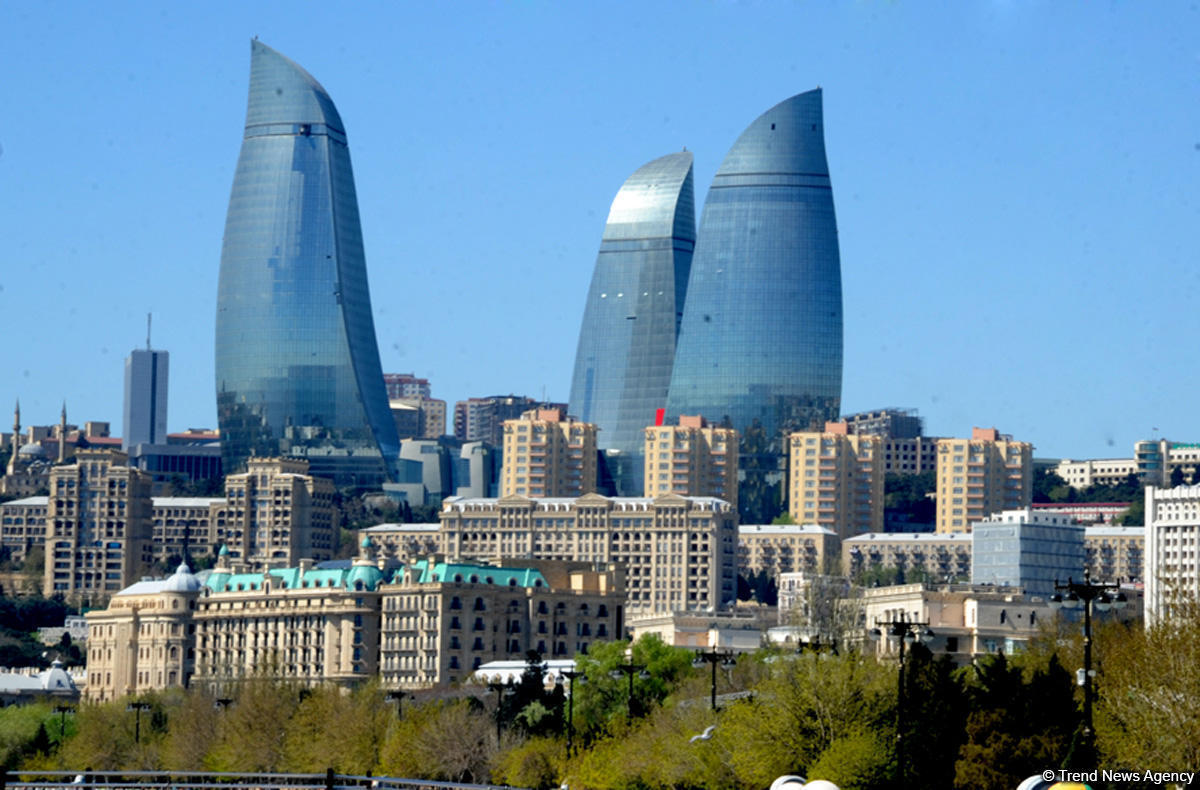Azerbaijan strives to be key link between Asia and Europe, expert says

By Kamila Aliyeva
Azerbaijan could be the most important key link between Asia and Europe by launching multi-billion transit projects that stretch from China to Western Europe, Fuad Shahbazov, a foreign policy analyst at the Center for Strategic Studies under the President of Republic of Azerbaijan, told Azernews.
“Lapis Lazuli Corridor, which is the product of five-years-long negotiations among five countries, is seen as one of the most prospective transit project linking Asia with Caucasus and Europe. Azerbaijan, Georgia and Turkey, which are participants to the project, will mostly get benefits as transit countries and gateway to Europe. Due to its geographic location, Azerbaijan has become a transit hub for many countries including Russia, Iran, Ukraine, Poland, Turkmenistan, Kazakhstan, China, Turkey and etc.,” he noted.
The expert also emphasized the importance of this project for Afghanistan.
“The landlocked Afghanistan has always been keen to orchestrate the Lapis Lazuli project as the most reliable and safe route in order to make inroads to European markets,” he added.
Asked about possible pitfalls of the project, the expert noted that there are no certain security concerns from the point of view of Azerbaijan, Turkey and Georgia, although they exist in terms of Afghanistan.
“The main source of concern is the growing militant activities in Afghanistan and in its borderline with Turkmenistan. However, official Kabul assures its partners that the Afghan Armed Forces are able to take adequate measures to ensure the safety of the transit route,” he added.
Shahbazov further underlined that Lapis Lazuli would likely compete with the China–Pakistan Economic Corridor (CPEC), which is supposed to allow Chinese goods to travel south via Pakistan and then be shipped by sea from the South Asian country’s Gwadar port.
The regional importance of the project cannot be overestimated.
Afghanistan and Turkmenistan heavily count on the project as a key link between Asia and Europe, according to the expert.
“Undoubtedly, Asian countries are in need of new potential markets to export their goods and boost the economy. In this regard, the long awaited Lapis Lazuli is a savior for South Asia. Moreover, Lapis Lazuli Corridor is strategically geared toward freeing Afghanistan from dependence on Pakistani, Iranian and Russian ports for its exports,” he concluded.
Afghanistan, Turkmenistan, Azerbaijan, Georgia and Turkey signed an agreement on the creation of the Lapis Lazuli transport corridor which is set to connect the five countries on November 15, 2017.
The trans-regional corridor will encompass mainly railways and highways, which will connect the city of Torghundi in the Afghan province of Herat with the port of Turkmenbashi on the shore of the Caspian Sea via Ashgabat.
From Turkmenbashi, goods will be able to travel further by ferry to Baku, where they would be placed on train cars and continue westward to Europe across the South Caucasus via the newly launched Baku-Tbilisi-Kars railway. Further, the corridor will pass through Tbilisi to Ankara with branches to Poti and Batumi, and, then, from Ankara to Istanbul.
The budget of the project is estimated to exceed $2 billion. Consultations on the creation of the transport corridor began back in 2012. Four technical discussions on the Lapis Lazuli Corridor agreement have been held, with the most recent occurring on March 31, 2016. National railways and motorways are already forming a significant part of this transport corridor, so the agreement is primarily aimed at facilitating transit logistics and simplifying customs procedures.
The initiative seeks to improve transport infrastructure and procedures (including for road, rail, and sea), increase exports, and expand the economic opportunities of citizens in countries benefiting from this new transport corridor.
Barriers to regional trade and transit and transaction costs will be reduced, in part, through a new Custom Integration Procedure and, between Afghanistan and Turkmenistan, a new Cross-Border Transport Agreement. Its projected impact is considerable not only because most of the needed infrastructure is already in place, but also because most of the investment required will focus on improving policy and governance.
The name ‘Lapis Lazuli’ is derived from the historic route that Afghanistan’s lapis lazuli and other semiprecious stones were exported along, over 2,000 years ago, to the Caucasus, Russia, the Balkans, Europe, and North Africa.
---
Kamila Aliyeva is AzerNews’ staff journalist, follow her on Twitter: @Kami_Aliyeva
Follow us on Twitter @AzerNewsAz
Here we are to serve you with news right now. It does not cost much, but worth your attention.
Choose to support open, independent, quality journalism and subscribe on a monthly basis.
By subscribing to our online newspaper, you can have full digital access to all news, analysis, and much more.
You can also follow AzerNEWS on Twitter @AzerNewsAz or Facebook @AzerNewsNewspaper
Thank you!
